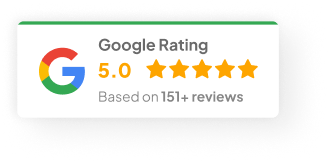21 Aug 25
Secret Ingredients to a Successful Food Web Page Design
First impressions stick, especially when it comes to food. A website is often the very first bite a customer takes, before they’ve even tasted a dish. If the design feels flat or cluttered, it doesn’t matter how good the food is, people will click away. But when the page looks sharp, appetizing, and easy to use? That’s when trust starts to build and sales start to happen.
Research backs this up. Reports found that 38% of people will stop engaging if the layout feels unattractive. For food businesses, where visuals, presentation, and emotion matter, it’s not just about having a site, it’s about having one that makes people hungry to try what’s on offer.
Why Food Businesses Need Strong Web Design
There’s a reason people say customers eat with their eyes first. Nearly 90% of the information the brain processes is visual. A clean, vibrant photo of a fresh salad communicates “healthy and delicious” in an instant.
Good design also builds trust. Almost 75% of consumers admit they judge a brand’s credibility based on its website design alone. For restaurants, bakeries, or meal delivery services, that trust often determines whether a cart gets completed or abandoned.
And mobile? That’s non-negotiable. More than 64.35% of web traffic now comes from smartphones. If someone can’t place an order or find the menu, they’ll likely just move on.
Key Ingredients for a High-Converting Food Website
Think of a food website like a digital storefront. The right mix of design elements can turn casual browsers into loyal diners. A few must-haves:
- Mouthwatering visuals that highlight real dishes
- Simple, intuitive navigation that makes menus easy to find
- Clear calls to action, like “Order Now,” “Book a Table”, always within reach
- Mobile-first design that actually feels smooth on any screen
- Fast load times; even a one-second lag can shave off sales
- Authentic storytelling that shows the brand’s real flavor
- Customer reviews and photos that create instant trust
Mistakes That Can Sink a Food Website
Some missteps can undo all the hard work. Common ones include:
- Overloading pages with text instead of letting visuals lead
- Using stock images that don’t show real dishes
- Checkout steps that drag on like a marathon
- Skipping SEO basics like alt text, meta descriptions, and menu structure
- Overlooking accessibility with weak contrast or tiny fonts
These may sound small, but together they can be the reason customers drop off instead of ordering.
Why Bring in a Web Design Agency
Yes, DIY builders exist. But for food businesses aiming to grow, relying on templates usually leads to cookie-cutter results. A professional agency brings depth that goes beyond “pretty pictures”:
- Strategy tied to customer behavior and conversion goals
- Optimized layouts that simplify ordering and booking
- Technical know-how for speed, security, and SEO performance
- Ongoing support, because a website is never really finished
Why Chromatix Stands Out
Chromatix has been shaping digital experiences for food and hospitality brands for over 14 years. The approach is never just about visuals—it’s about performance.
What makes the difference?
- A track record of sites that lift leads, bookings, and sales.
- A deep understanding of food web design—from color palettes that spark appetite to checkout systems that reduce drop-offs.
- A collaborative process that tailors every design to the brand and audience. No cookie cutters here.
A food website should work harder than just looking nice. It should help customers connect, crave, and convert. That’s the standard Chromatix holds.
Wrapping Up
A food website is more than a digital menu. Done right, it’s the first taste of the brand. It builds trust, sparks cravings, and turns visitors into loyal diners.
At Chromatix, design is treated as both art and science. Every decision is made to capture attention and drive results.
Ready to create a website that doesn’t just look good, but actually grows the business? Reach out to Chromatix today.


